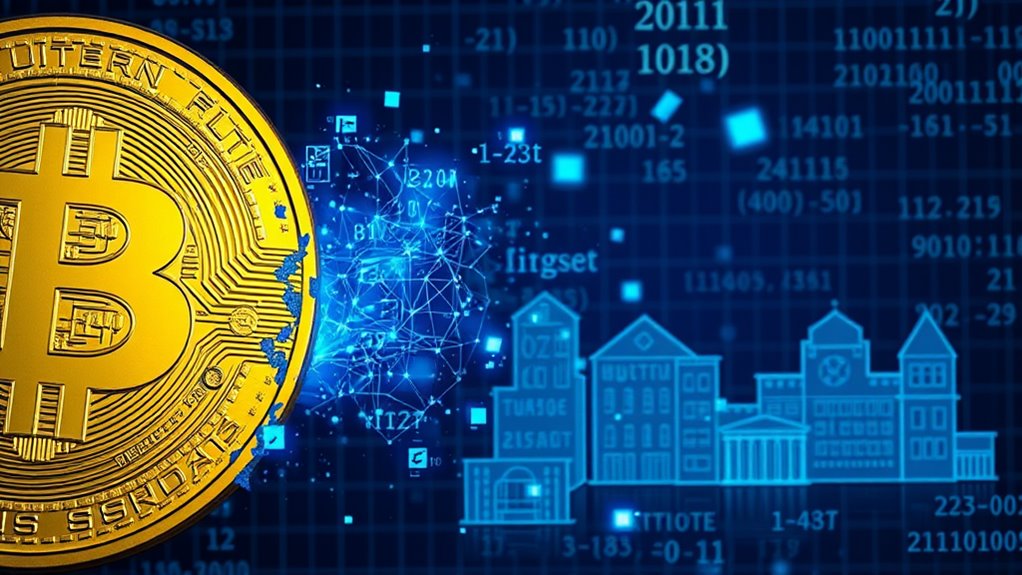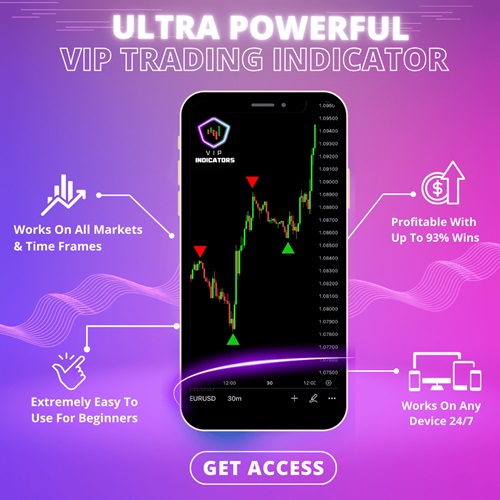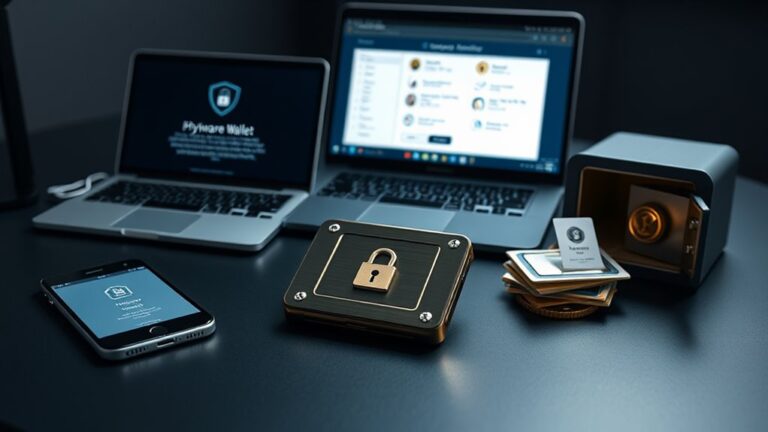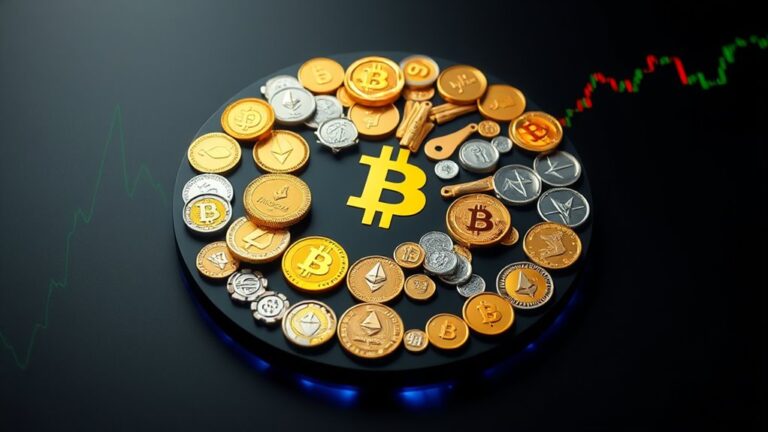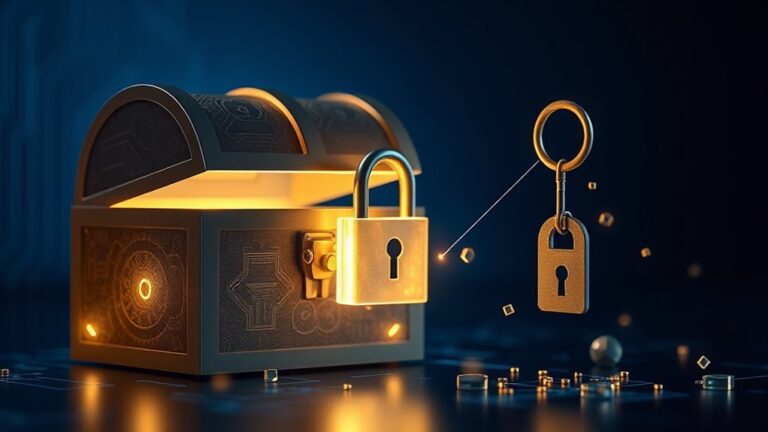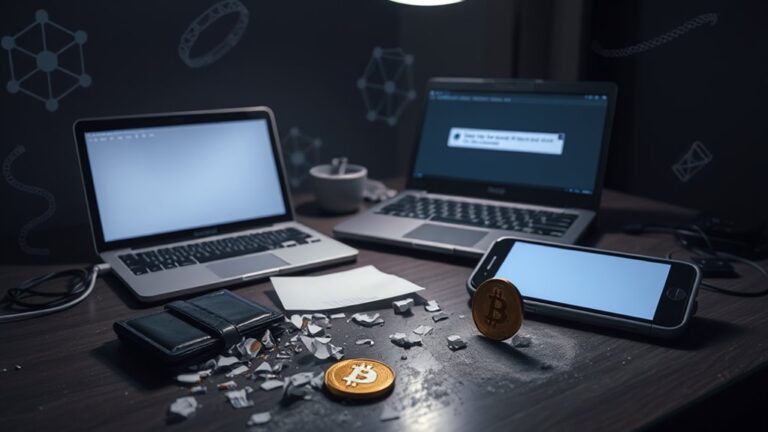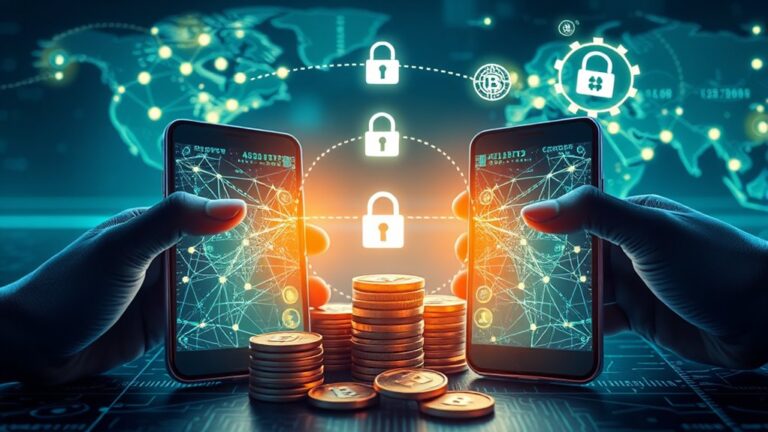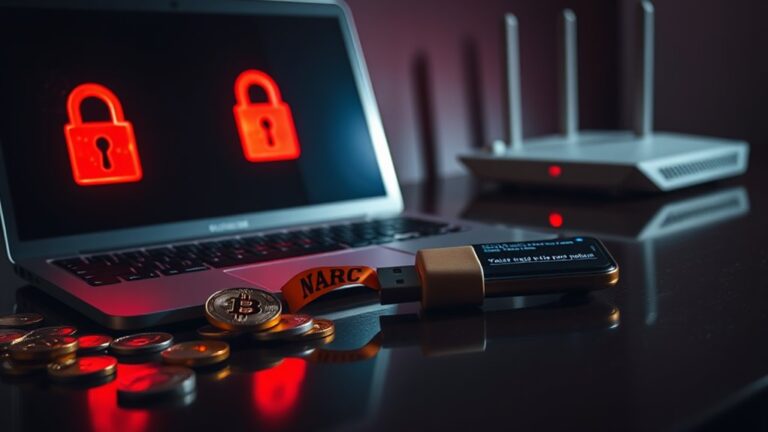Tokenization in Crypto
Note: This post may contain affiliate links, and we may earn a commission (with No additional cost for you) if you purchase via our link. See our disclosure for more info. The gold and crypto world is constantly changing. This is not financial, investment, legal, or professional advice. So, please verify the information on the gold and cryptocurrency provider’s websites.
Tokenization in crypto is all about turning real assets into digital tokens on the blockchain. It sounds fancy, but it basically means making things like real estate and artwork more accessible. Forget about needing deep pockets to invest—now you can own a fraction of those high-value goodies. Plus, it's secure and quick, thanks to smart contracts. Think 24/7 trading and less fraud. Curious about the impact and future? There's a lot more to uncover here.
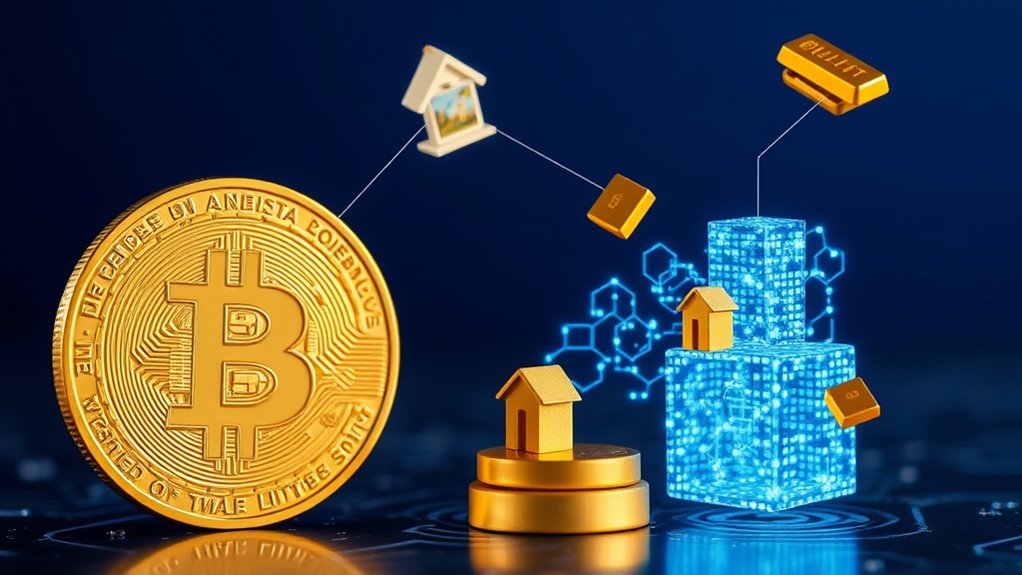
Tokenization in crypto might sound like just another buzzword, but it's a game changer, folks. Imagine taking your grandma's old painting and turning it into a digital token on the blockchain. Yeah, that's tokenization. It converts real-world assets into blockchain-based tokens, allowing everyone to track ownership in a transparent manner.
Fractional ownership? You bet! Now, you can own a slice of that fancy real estate or that overpriced art piece without having to sell a kidney.
Own a piece of luxury real estate or high-end art without breaking the bank!
What's the secret sauce? Smart contracts. These little pieces of code automate agreements and guarantee compliance with token standards like ERC-1400. They make the whole process smoother than a buttered slide.
And guess what? Tokenization covers both tangible assets, like gold, and those fuzzy intangible ones, like intellectual property. Tokens represent tangible or intangible assets, experts predict this market will hit a jaw-dropping $10 trillion by 2030. Yes, you read that right. Additionally, many businesses are adopting data tokenization techniques to enhance security and protect sensitive information. Gold-backed cryptocurrencies like Tether Gold combine the stability of physical gold reserves with the flexibility of digital assets.
The benefits are hard to ignore. Liquidity? Check. You can trade 24/7 and own fractions of assets that were once tied up in red tape.
Accessibility? Absolutely. Retail investors can now dip their toes in without needing a trust fund. Security? With decentralized ledgers, the chances of fraud drop drastically. And say goodbye to middlemen—transactions just got streamlined.
Now, let's talk token types. You've got fungible tokens (think Bitcoin), unique NFTs, governance tokens giving you a say in networks, utility tokens for services, and security tokens representing investments. The possibilities are endless.
Use cases? Beeple's NFT sold for $69 million. There's also tokenized real estate and corporate bonds. Seriously, the list goes on.
In a world where data security is paramount, techniques like secure hashes and split tokenization are making waves. Compliance is no longer a headache; it's streamlined and efficient.
Frequently Asked Questions
What Are the Benefits of Tokenization for Traditional Assets?
Tokenization of traditional assets? It's a game changer.
Imagine owning a slice of a fancy painting or a skyscraper—now you can! Fractional ownership lets smaller investors join the party.
Plus, 24/7 trading means no more waiting for the market to open. Costs drop too, thanks to smart contracts—goodbye, pesky brokers!
And let's not forget the security; blockchain keeps everything safe.
It's like opening a door to a whole new investment world. Exciting, right?
How Does Tokenization Impact Regulatory Compliance in Crypto?
Regulatory compliance in this wild world is a real mess.
Different countries can't agree on what a token even is—security, commodity, who knows? It's like a never-ending game of legal Twister.
Then there are those pesky AML and KYC rules that everyone has to follow, or else.
And let's not forget the rapid tech changes that leave regulations in the dust.
Good luck keeping up! It's a compliance nightmare that's only getting crazier.
Can Tokenized Assets Be Used for Collateral?
Tokenized assets can indeed be used as collateral. Major players like Goldman Sachs and HSBC are already on it.
Instant settlements? Check. Lower administrative hassle? Double check.
This is not just some pie-in-the-sky idea; it's real. Smart contracts make it all smoother, automating tasks that used to take forever.
What Are the Risks Associated With Tokenization in Crypto?
Tokenization comes with a truckload of risks.
Legal gray areas? Check. One minute you're compliant, the next, you're in a regulatory nightmare.
Cybersecurity? Good luck with hacks and stolen assets.
Market volatility? Investors might find their treasures trapped, unsellable.
Technological issues? Just wait until your fancy blockchain tech goes obsolete.
It's a wild west out there, folks. Risks looming everywhere, and some folks still think it's a free ride.
Good luck!
How Does Tokenization Affect Liquidity in Financial Markets?
Tokenization shakes up liquidity in financial markets. It's like giving a high-five to accessibility. Fractional ownership means more investors can jump in, and that translates to quicker trades. Less waiting, more action.
Think 24/7 trading—goodbye, boring market hours. Yet, there's a catch. Risks lurk, like regulatory headaches and cybersecurity threats. But hey, nothing's perfect, right?
Despite the hurdles, tokenization is here to stir things up and make markets a bit more vibrant.

